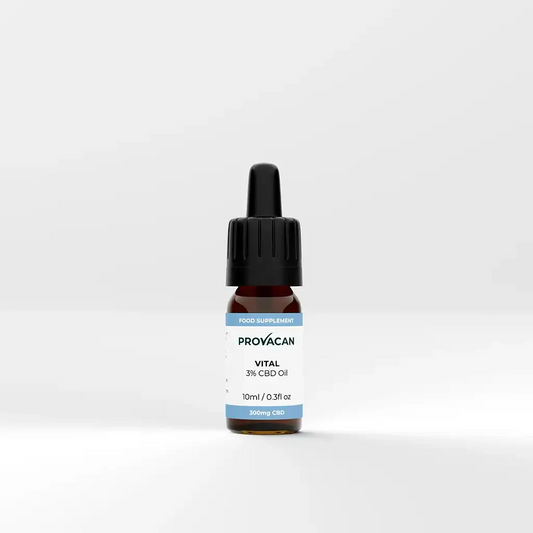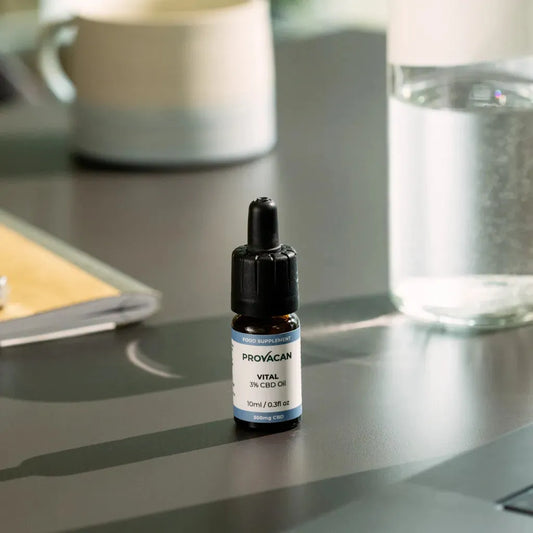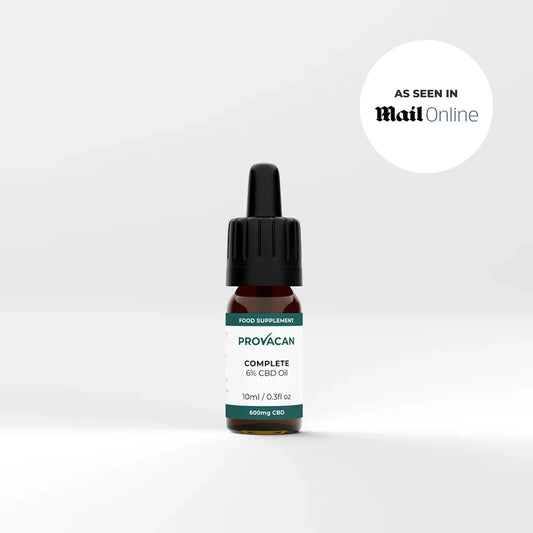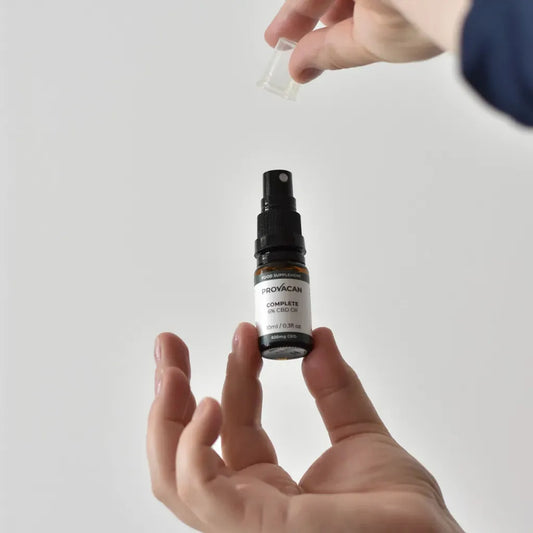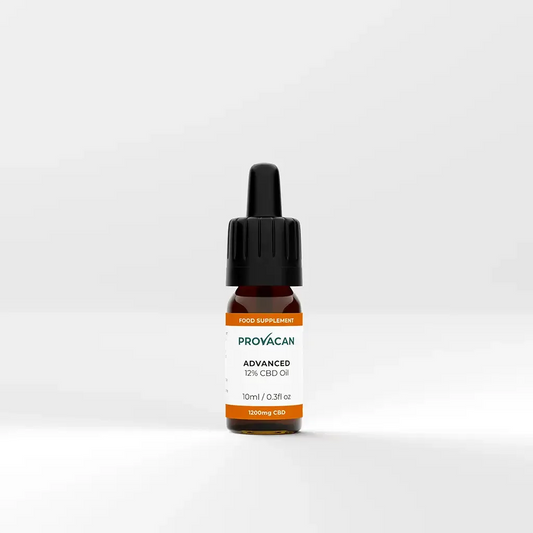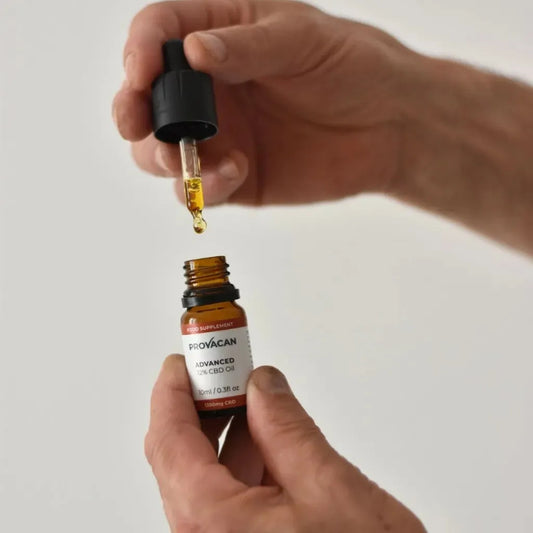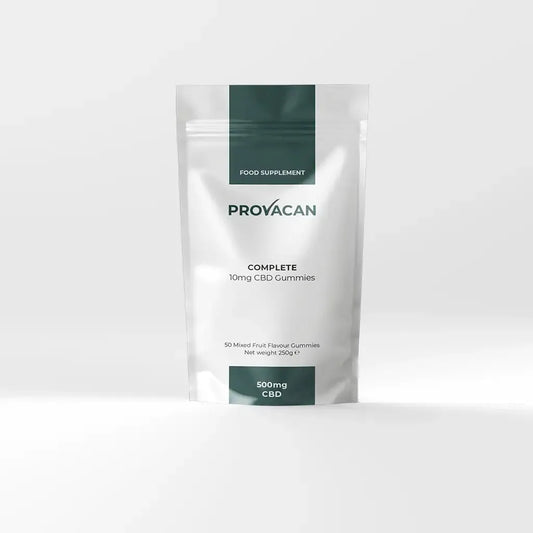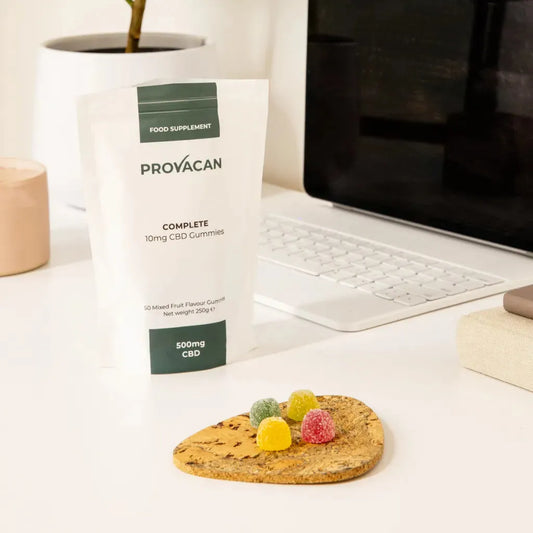Cannabidiol, commonly known as CBD, has gained significant popularity in recent years for its potential therapeutic benefits. Many people turn to CBD to help relax and unwind from the stresses of daily life. However, determining the optimal dosage of CBD for relaxation can be a challenging task. In this article, we will explore the factors that influence CBD dosage for relaxation and provide some guidance on how to find the right amount for you.
Understanding CBD and Its Relaxing Properties
CBD, short for cannabidiol, is a natural compound found in the cannabis plant. This remarkable compound has gained significant attention in recent years due to its potential therapeutic benefits. Unlike its counterpart, tetrahydrocannabinol (THC), CBD does not produce psychoactive effects, meaning it won't get you high.
So, how does CBD work to promote relaxation? Well, it all starts with the body's endocannabinoid system (ECS). This intricate system consists of receptors, enzymes, and endocannabinoids that work together to maintain balance and harmony within the body. The ECS plays a crucial role in regulating various physiological processes, including mood, pain sensation, appetite, and sleep.
When CBD is consumed, it interacts with the ECS, specifically targeting the CB1 and CB2 receptors. By doing so, CBD helps to modulate the activity of these receptors, which can have a profound impact on our overall well-being. Research suggests that CBD may help promote relaxation by reducing anxiety, alleviating pain and inflammation, and improving sleep quality.
One of the most fascinating aspects of CBD is its potential to reduce anxiety. Anxiety disorders affect millions of people worldwide, and finding effective treatments can be challenging. However, studies have shown promising results when it comes to CBD's anxiolytic properties. CBD interacts with serotonin receptors in the brain, which are responsible for regulating mood and anxiety levels. By modulating the activity of these receptors, CBD may help to reduce feelings of anxiety and promote a sense of calm.
In addition to anxiety, CBD has also been studied for its potential analgesic properties. Chronic pain affects millions of individuals and can have a significant impact on their quality of life. CBD has been found to interact with receptors involved in pain perception, potentially reducing pain and inflammation. This makes CBD an intriguing option for those seeking natural alternatives to manage their pain without the side effects associated with traditional pain medications.
Furthermore, CBD has shown promise in improving sleep quality. Many individuals struggle with sleep disorders, such as insomnia, which can have a profound impact on their overall well-being. CBD may help promote better sleep by addressing underlying issues that contribute to sleep disturbances, such as anxiety and pain. By reducing anxiety and alleviating pain, CBD may create a more conducive environment for restful sleep.
It's important to note that the effects of CBD can vary depending on several factors, including the dosage and the individual's unique biochemistry. Finding the right dosage and method of consumption is crucial to experiencing the potential benefits of CBD. Consulting with a healthcare professional knowledgeable in CBD can help guide you in determining the best approach for your specific needs.
In conclusion, CBD is a natural compound that holds promise in promoting relaxation. Through its interactions with the body's endocannabinoid system, CBD may help reduce anxiety, alleviate pain and inflammation, and improve sleep quality. As research continues to unfold, CBD's potential therapeutic benefits are becoming more apparent, offering hope for those seeking natural alternatives for relaxation and well-being.
Factors Influencing CBD Dosage To Relax
When it comes to determining how much CBD to take for relaxation, several factors should be considered:
Body Weight and Metabolism
One important factor to consider is body weight and metabolism. Generally, individuals with higher body weight may require a higher CBD dosage to experience the same effects as those with lower body weight. Additionally, individuals with faster metabolisms may process CBD more quickly, requiring higher doses to achieve relaxation.
Individual Sensitivity to CBD
Each person reacts differently to CBD, so it is essential to start with a low dosage and gradually increase it until the desired relaxation effects are achieved. Some individuals may find that a small amount of CBD is sufficient, while others may need a higher dosage to experience the same level of relaxation.
Different Forms of CBD and Their Effects
CBD is available in various forms, including oils, edibles, vape liquids, and topicals. Each form has its unique characteristics and effects on relaxation. CBD oils are typically taken sublingually and provide a quick onset of effects, while edibles offer a longer-lasting but slower onset of relaxation. Vaping CBD allows for rapid absorption, making it an ideal option for immediate relaxation. Topical CBD products can be applied directly to specific areas for targeted relaxation.
CBD Oil vs. Edibles
When considering CBD oils versus edibles for relaxation, it's important to consider the desired duration and onset of effects. CBD oils are often preferred for their fast-acting nature, providing quick relaxation when needed. Edibles, on the other hand, may take longer to kick in but offer a sustained release of CBD for prolonged relaxation.
Topical CBD for Targeted Relaxation
If you are seeking relaxation for specific areas of the body, such as tense muscles or joints, topical CBD products may be a suitable option. Creams, lotions, and balms infused with CBD can be applied directly to the skin for localized relief and relaxation.
Understanding CBD Potency and Concentration
When purchasing CBD products, it's essential to understand the potency and concentration of the product. CBD concentration refers to the amount of CBD in a product, while potency indicates the strength or effectiveness of CBD per serving.
Deciphering CBD Concentrations
CBD concentrations are typically expressed in milligrams (mg) and can vary significantly among products. It's crucial to read labels carefully and choose products with concentrations that align with your desired relaxation goals. Starting with lower concentrations and gradually increasing the dosage allows for better customization and minimizes the risk of adverse effects.
The Role of Full Spectrum, Broad Spectrum, and Isolate CBD
There are different types of CBD available, including full spectrum, broad spectrum, and CBD isolate. Full spectrum CBD contains all the naturally occurring compounds found in the cannabis plant, including trace amounts of THC. Broad spectrum CBD, on the other hand, undergoes additional processing to remove THC while preserving other beneficial compounds. CBD isolate is the purest form of CBD, containing no other compounds.
When it comes to relaxation, some individuals may find that they respond better to full spectrum or broad spectrum CBD due to the entourage effect, which suggests that the combination of multiple cannabinoids and compounds may enhance CBD's therapeutic benefits. Others may prefer CBD isolate to avoid any potential trace amounts of THC.
Tailoring CBD Dosage for Specific Relaxation Goals
The optimal dosage of CBD for relaxation can vary depending on individual goals. Whether you are managing stress and anxiety, improving sleep quality, or seeking to use CBD for meditation and mindfulness, tailoring CBD dosage to specific goals is essential.
Managing Stress and Anxiety with CBD
If your primary goal is to manage stress and anxiety, a moderate dosage of CBD may be beneficial. Studies have shown that CBD can help reduce anxiety by interacting with serotonin receptors in the brain, which play a role in mood regulation. Starting with a low dosage, such as 10-20 mg per day, and gradually increasing it can help determine the optimal amount for relaxation.
Improving Sleep Quality with CBD
For individuals struggling with sleep issues, CBD may be a potential solution. CBD can promote relaxation and relieve pain, two factors that can significantly impact sleep quality. When to take CBD oil for sleep? We generally recommend taking CBD oil 30 minutes to an hour before going to bed. This timing allows the body to absorb and react to the CBD, aligning its calming effects with your natural sleep cycle. Starting with a low to moderate dosage of CBD, typically around 20-40 mg, may help improve sleep quality and duration.
Using CBD for Muscle Relaxation and Pain Relief
Whether it's post-workout muscle soreness or chronic pain, CBD has shown promise in relieving discomfort and promoting muscle relaxation. For targeted relief, topicals such as balms or lotions can be applied directly to the affected area. Alternatively, oral CBD products can provide a more systemic effect. Starting with a lower dosage and gradually increasing it until the desired relaxation and pain relief are achieved is advisable.
Experimenting Safely with CBD Dosage
When determining how to take CBD for relaxation, it is important to approach it with caution and experiment safely. Here are some guidelines to follow:
Start Low and Go Slow: CBD Dosage Trial
To minimize the risk of adverse effects, start with a low dosage of CBD, such as 10-20 mg per day. Monitor how your body responds to the CBD and gradually increase the dosage after a few days if necessary. By starting low and going slow, you can find the right dosage without overwhelming your system.
Monitoring and Adjusting Dosage Over Time
Everyone's body is unique, and CBD affects individuals differently. It's essential to monitor how your body responds to different dosages and make adjustments accordingly. If you feel that the current dosage is not providing the desired relaxation effects, consider increasing it slightly. However, always be mindful of any potential side effects and consult a healthcare professional if needed.
Consulting with Professionals for Personalised Advice
If you are unsure about the appropriate CBD dosage for relaxation or have specific health concerns, it is advisable to consult with a healthcare professional or a CBD specialist. They can provide personalized advice and help you determine the right dosage based on your individual needs and medical history.
Buy CBD
After determining the optimal dosage of CBD for relaxation, it's time to find a reputable source to buy CBD products. Look for brands that provide detailed information about their products, such as third-party lab test results and extraction methods. This ensures that you are getting a safe and effective product to support your relaxation goals.
In conclusion, finding the right dosage of CBD for relaxation is a process that requires careful consideration of various factors. Factors such as body weight and metabolism, individual sensitivity to CBD, and the desired form of CBD can all influence the optimal dosage. Starting with a low dosage, experimenting safely, and consulting professionals if needed can help you customize your CBD dosage for specific relaxation goals. With patience and mindfulness, you can harness the potential benefits of CBD to enhance your relaxation experience.


